Columnist competition: Young farmers share hopes for 2021
The search for new Farmlife columnists prompted a flood of fantastic entries, after we asked you to write an article titled “2021”.
We launched the search to find people aged 30 or under who could act as ambassadors for the next generation, providing candid accounts of what it’s like to be a student or in the early years of a career.
We’ll announce our two winners next week and, in the meantime, here are a selection of extracts from some of the other entries that particularly caught our eye.
See also: Young farmers shine at New Scientist event
Thank you to everyone who entered – your articles provided an informative, insightful and, at times, amusing insight into what life’s like for the younger generation.
Bridgette Baker, 20, Somerset
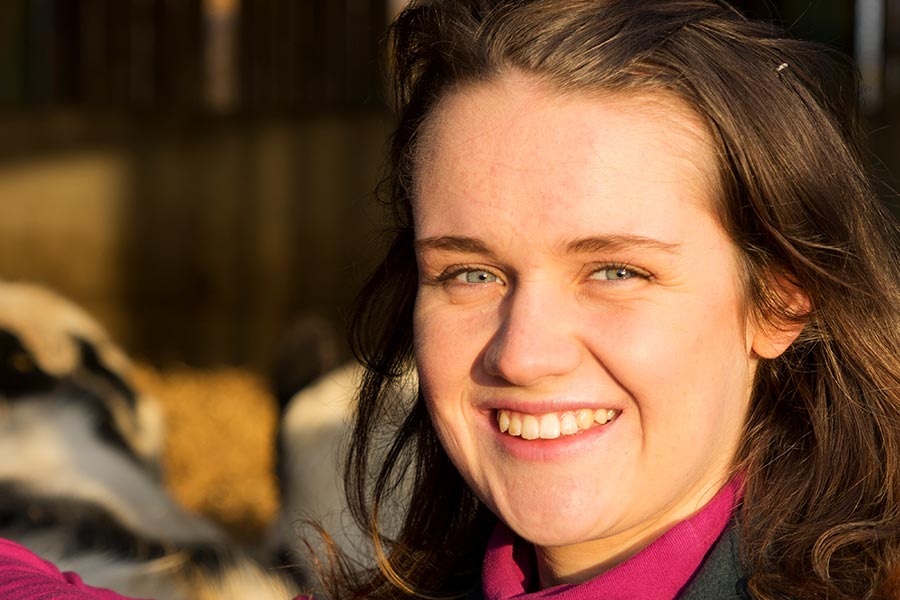
Bridgette Baker
I asked my Young Farmers Club what their plans or hopes were for 2021, and the Snapchat group chat blew up with responses.
One member shared his exact plan: “Cider, mixer, dance, work!”
Socialising as a young farmer is so important. It stops people from feeling isolated and gives something to look forward to after work.
You can talk about serious things such as stresses at work, or have a laugh. There is always a YFC member who will give an answer to your problems, even if that answer isn’t always useful!
For everyone 2021 will be about learning. Our world is changing, so adapting and being prepared for it is the broad goal for me.
University has already taught me loads and I feel very lucky that I have an interest in an industry that is always going to be here – I know I will always have a job.
But for now, my Young Farmers’ group chat will be filled with random videos of everyone’s day – you can expect one member in their tractor spotting another in their tractor across a few fields, or someone finding Wally on the ‘Where’s Wally’ advent calendar his gran gave him…
Nick Tarry, 28, Northamptonshire
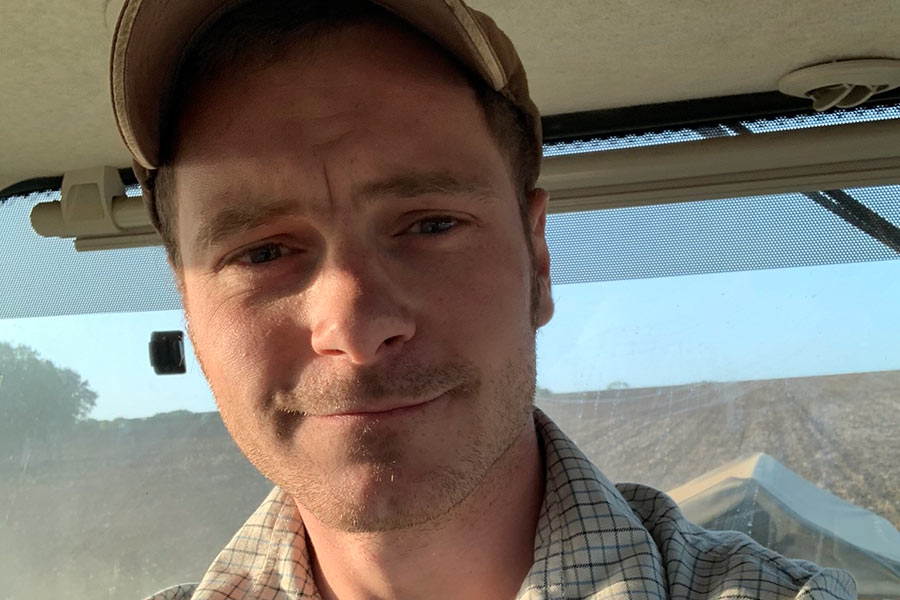
Nick Tarry
I was born into farming and was probably always destined to work in agriculture, but seeing young people online, especially those from a non-farming background, showing an interest in farming is great.
One question I get asked a lot is: How can I get into farming? It makes me happy to see there’s a whole generation out there keen to get stuck in.
And maybe that’s the best thing for this industry – to have young people with fresh ideas coming into the fold. Moving forward, we have to be thinking differently, maybe a little outside the box, to help make our farming future sustainable.
As a young farmer myself, I like to think my enthusiasm for the job and willingness to try new ideas will help benefit our family farm.
There’s nothing to be gained from the “I’ve always done it this way, so why change?” philosophy, but that doesn’t mean we don’t need to use the knowledge and experience of the older generation. I will always ask my dad for advice and his opinion on any ideas I have.
My dad refers to the 1980s as the “golden era” of farming. I’ll have to take his word for it as I was just a twinkle in his eye back then, but if we can keep ourselves moving forward, willing to accept change and adapt to it, then I see no reason why we can’t make the 2020s just as great.
I mean, we have tractors that can drive themselves now. If only my grandad was still around to see that.
So, come on 2021, we’ve got this. There’s still time to make this decade another “golden era”.
Katie Fallon, 22, County Durham
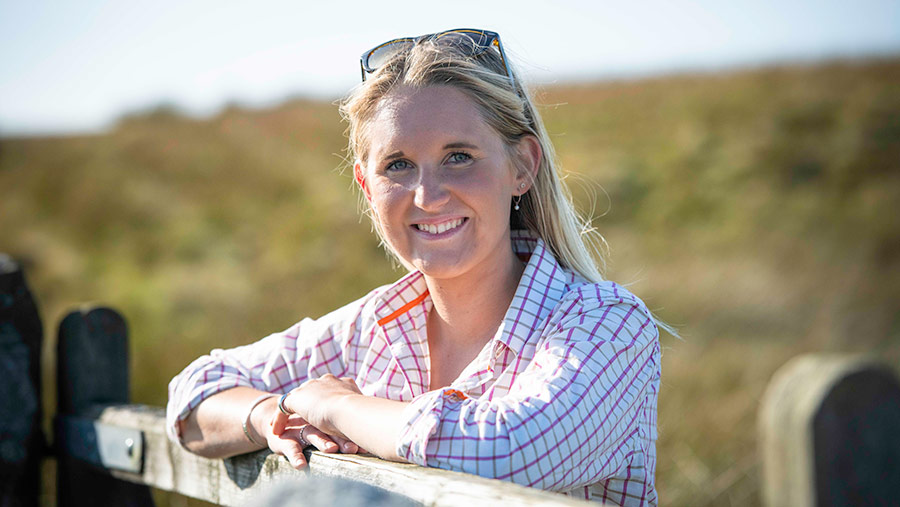
Katie Fallon
We weren’t all in the same boat in 2020, but we were in the same storm. While this storm has brought with it devastation and destruction it has cleared the way for a new landscape, one which will thrive and flourish.
As a young person in the industry, just starting out on my agricultural career, 2021 excites me. Graduating from university in a global pandemic was not in the textbooks, but farming proved its resilience once again.
Even when the world is upside down and job prospects have plummeted, the opportunities within agriculture are endless and seemed to be the only form of security I had amid Covid-19.
With a new Act and army of agricultural graduates 2021 will be triumphant, leaving 2020 to the history books.
James Herrick, 29, Leicestershire
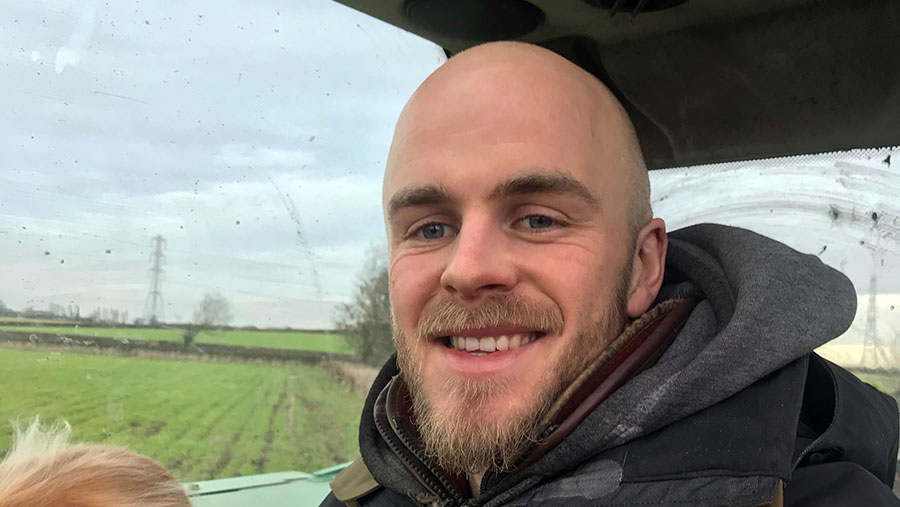
James Herrick
I’m quite excited by the new Environmental Land Management Scheme. It’ll pay “public money for public goods” – the latter being essentially things money can’t buy, that benefit everyone.
A few examples are clean water, clean air, thriving plants and wildlife, protection from environmental hazards. I’m sure we can all agree that everyone deserves the right to have access to all of these things.
Collectively, farmers and landowners undertake management practices on 91.6% of the UK land mass. A small change from each and every one of us can make an enormous difference to the bigger picture.
We always hear of the depletion of our native flora and fauna, yet by using cost of production analysis technology, we can turn over unproductive areas of our farm to wild flowers and winter bird feed covers.
We can fence off riparian areas to reduce soil erosion and stabilise river banks. We can adopt rotation regenerative grazing practices to reduce the risk of over-grazing sensitive environmental areas.
We can grow cover crops to sequester carbon in our soils, improving our organic matter, reversing global warming and creating more resilient soils for the future.
It is unlikely that we will get swathes of praise from the public or politicians, but that’s not why we should do it.
We have the ability to change what our great, great-grandchildren think of us. I want mine to be able to live in a world full of wildlife, swim in unpolluted water, breathe clean air and think: “You know what? Great-great-grandad did a good job.”
After all, not all heroes wear capes.
Emily Marshall, 24, Lincolnshire
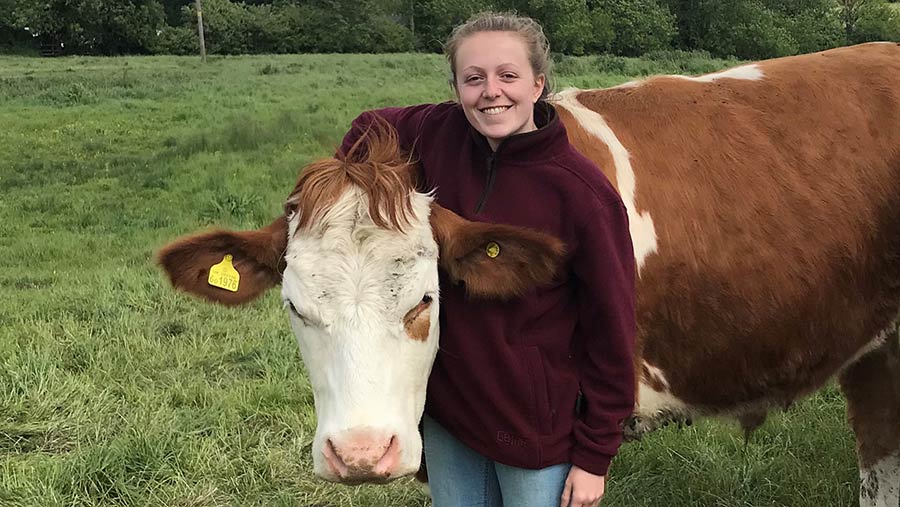
Emily Marshall
2020 has seen us lose the true human-to-human element, with the Covid-19 pandemic meaning no conferences, no meetings, no discussion groups.
For the younger generation, such events are crucial. The relationships that now give me my closest industry contacts and friends were all sparked in these settings.
“You don’t miss something until it’s gone,” the saying goes, and that’s certainly true in this instance.
I’ve adapted to working from home quite well. I regularly have video calls with colleagues and customers and am fortunate to have horses to keep me occupied.
However, I’m acutely aware that my experience of 2020 has not been the same as that of others. Agriculture already has one of the highest rates of suicide of any profession, and with increased periods of isolation, mental health is bound to suffer.
Regardless of who you are and where you fit into the agricultural industry – whether you’re a hill farmer whose main interactions revolved around markets, a graduate who made new contacts sharing cups of tea at conferences, or a farm manager who grabbed a pint with an old friend at an awards ceremony – this period of isolation has affected us all.
Farming thrives on human contact. We need it to be at our best, not only professionally, but mentally too. After all, we are a sociable bunch.
It’s important to say it’s OK not to be OK. Whatever your age, gender or job role, there’s no shame in asking for help. We must stay positive, and we can get through this together.
Clearly a Zoom or Teams call is no substitute for the real deal. After all, you don’t get the sweet smell of livestock through a computer! Let’s hope 2021 will see the return of in-person interactions.

